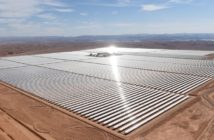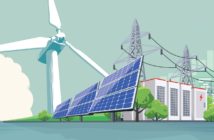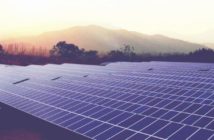Emirates 24/7
Investment of $5.5bn in sector was only 2.1% of world’s total
By Staff
Investment in renewable energy worldwide surged by nearly 17 per cent to an all time high in 2011 but it declined in the Middle East and North Africa (MENA) because of political unrest, according to official data.
The fall in such investments in the region was in most Arab countries except Morocco and the UAE, where it increased as the two countries remained immune to political uncertainty sweeping MENA, said the Saudi-based Arab Petroleum Investment Corporation (Apicorp), an affiliate of the 10-nation Organization of Arab Petroleum Exporting Countries (OAPEC).
Citing a recent report by the Centre for Climate Change and Sustainable Energy Finance – a collaborating partnership between the United Nations Environment Program (UNEP) and the Frankfurt School of Finance and Management, Apicorp said global new investment in renewable power and fuels (solar, wind, modern biomass, waste-to-energy, biofuels, small hydro, geothermal and marine) increased by 17 per cent to reach an all-time high of $257 billion in 2011. This was more than six times the amount achieved in 2004 and nearly the double of 2007 – the year preceding the global financial crisis.
As a matter of fact, actual investment in renewable energy amounts to $325 billion when adding $68 billion worth of merger and acquisition transactions in 2011, Apicorp said in a study, sent to Emirates 24/7.
It noted that the regional pattern of investment appears markedly uneven, with two thirds of investment originated in developed economies and one third in the developing ones. It said that despite a decline of such investments in Germany – the world’s third biggest market after China and the US – Europe remained by far the most important investment area. It was followed by China and the US, with the latter closing in on the former.
“The lowest level of investment is found in MENA… this poor performance has more to do with policy uncertainty than it does with business motivations,” said the study, authored by Apicorp’s senior consultant, Ali Aissaoui.
“Despite some tentative advances in the region, progress has generally been disappointing. According to the report, total renewable energy investment in the Middle East and Africa reached $5.5 billion in 2011, representing 2.1 per cent of the world total. This poor performance was made even worse by a fall in investment of 18 per cent compared with 2010.”
According to Apicorp, policy uncertainty created by socio-political turmoil in parts of the region has delayed a number of projects.
But it added that important initiatives did progress in countries spared by the turbulence such as in Morocco and the UAE, where investment reached $1.1 billion and $0.8 billion, respectively.
In other countries, where policy makers have announced ambitious goals, investment has so far been too small to appear in global statistics, it said.
“Worth considering in the context of MENA is the report’s assertion that rapidly falling costs of technologies have made solar power an economically viable alternative to oil-fired turbines and off-grid diesel engine generators,” it said. “Indeed, assuming oil products are valued at international prices, positive return can be expected for solar power when factoring in the opportunity costs associated with burning oil…… however, this argument is debatable in the case of oil exporting countries.”
.






